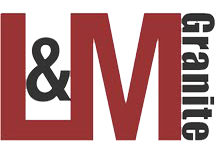As the pharmaceutical landscape becomes increasingly global, mutual recognition agreements (MRAs) have become a critical tool in ensuring that medicines are safe, effective, and accessible to patients worldwide. One area where MRAs are particularly important is in the regulation of drugs, which are subject to varying standards and requirements across different countries and regions.
In essence, a mutual recognition agreement is a pact between two or more countries that allows them to recognize each other`s regulatory systems for certain products, such as drugs. Under an MRA, regulatory authorities in one country can rely on the assessments and approvals of another country`s authorities, thereby reducing duplication of effort and streamlining the approval process for manufacturers.
The benefits of MRAs in the drug industry are clear. They can facilitate faster access to new drugs, reduce the costs of drug development and approval, and ensure that patients have access to safe and effective medicines. However, the implementation of MRAs for drugs is not without its challenges.
One of the main challenges is the need for regulatory harmonization. Different countries have different regulatory frameworks, and achieving consensus on the standards for drug safety, efficacy, and quality can be difficult. The World Health Organization (WHO) has identified regulatory harmonization as a critical area for global health, and has worked with countries to develop guidelines and standards for drug regulation.
Another challenge with MRAs is ensuring that they work effectively in practice. This requires strong communication and collaboration between regulatory authorities in different countries, as well as ongoing monitoring and evaluation of the regulatory systems involved.
Despite these challenges, MRAs for drugs have gained traction in recent years. The European Union has implemented MRAs with several countries, including Japan, Canada, and Switzerland, while the Association of Southeast Asian Nations (ASEAN) has developed a scheme for mutual recognition of pharmaceuticals.
In conclusion, mutual recognition agreements are a key tool for regulating drugs in a globalized world. They can help to ensure that patients have access to safe and effective medicines, and can reduce the burden on manufacturers seeking approval in multiple countries. However, achieving effective implementation of MRAs requires ongoing collaboration, regulatory harmonization, and monitoring. As such, it is essential for regulatory authorities and industry stakeholders to work together towards a common goal of improving global drug regulation.

